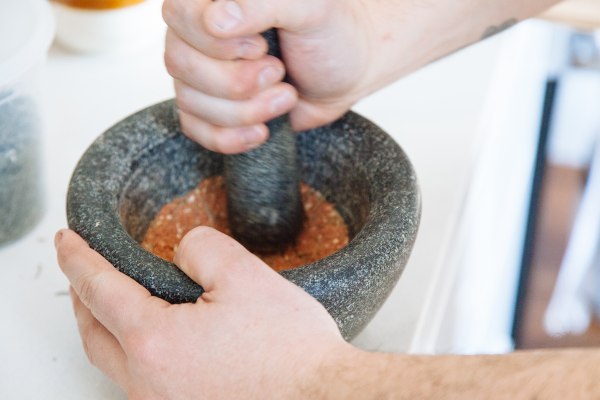 “The part can never be well unless the whole is well.”
“The part can never be well unless the whole is well.”
(Plato)
My patients are usually surprised when I suggest they start taking probiotics.
“But I don’t have a problem with my stomach. I need something to help with the eczema and allergies,” they say.
What they don’t know, but soon learn, is that more than 70 percent of the body’s immune system is in the gastrointestinal (GI) tract. That means when digestion isn’t working properly there will be side effects throughout the body. In fact, poor digestion can cause low energy, emotional imbalance, weight gain, skin problems, and inflammation. And, since in functional medicine we treat the body as interconnected systems, helping patients reestablish a healthy digestive tract is one of my first priorities.
Most digestive issues occur because of a microbial imbalance. The gut contains both good and bad bacteria. The good microbes promote a healthy digestive tract—one that absorbs nutrients and eliminates toxins. The bad microbes can trigger sickness and disease in the form of nutritional deficiencies and system toxicity. The toxicity build-up created by these bad bacteria can contaminate the bloodstream and further impair digestion—causing a cycle of GI tract upset.
It’s pretty clear to most people when they’re suffering from an excess of harmful microbes in the gut. Symptoms such as heartburn, gas, bloating, constipation, and diarrhea are hard to miss. Because they are uncomfortable, conventional medicine has developed several popular ways to treat these symptoms. In fact, proton-pump inhibitors (PPIs), prescription medicine to help ease the symptoms of heartburn, are among the most commonly prescribed classes of medicine in the United States. The problems with PPIs, though, are numerous. For one, they only treat the symptoms and not the underlying causes of the heartburn. And secondly, they have vicious side effects, including causing problems with Vitamin B12 and magnesium absorption.
To treat the cause of stomach and digestion upset, you have to look at the cause—and usually you’ll find that it’s an imbalance in the amount of bad bacteria. This overgrowth of bad bacteria can be caused by several factors, the most common of which is the use of antibiotic drugs. Antibiotics kill off all bacteria—good and bad. The prevalence of antibacterial soaps and hand sanitizers, poor eating habits, and increased stress also account for excessive harmful microbes in the gut.
Probiotics help increase good bacteria and restore balance to the gut. As probiotics take up space in the lower digestive tract, there’s less physical room for bad bacteria. To make sure you’ve got plenty of probiotics in your system, consider adding fermented foods to your diet. Foods like yogurt, cheese, miso, kefir, sauerkraut, sourdough bread, kimchi, and pickled vegetables can contain strains of beneficial probiotics.
Another way to get good bacteria into your gut is to take a supplement. Probiotics that come in pill form are easy to find and can be relatively inexpensive. Remember, you need the bacteria to be alive when they get to your lower digestive tract, so be sure to look for brands that have stayed refrigerated from processing through sales, or for pills that utilize heat stabilization technology. It’s also a good idea to take a probiotic that offers at least 10 billion colony-forming units and includes a broad spectrum of probiotics such as Lactobacillus acidophilus, Bifidobacterium longum, Bifidobacterium bifidum, Lactobacillus casei, and Lactobacillus rhamnosus.
Scientific studies using probiotics to treat ulcerative colitis and diarrhea-related illnesses have shown promising results. In my own practice, I’ve seen the introduction of probiotics help restore balance to the gut and bring all of the body’s systems back into alignment. There’s no such thing as a wonder drug, but it is a wonder what a little good bacteria can do.
This article was written by Dr. Tom Sult and Amanda Ronan. To see this article as it appears on the Just Be Well movement website, click here.
Image via Death to the Stock Photo | This post may contain affiliate links, which means if you click and then purchase we will receive a small commission (at no additional cost to you). Thank you for reading & supporting Happy Living!

